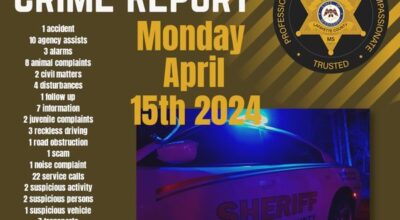Mississippi high court hears legislative speed-reading fight
Published 12:00 pm Tuesday, July 19, 2016
JACKSON — The Mississippi Supreme Court is hearing arguments Tuesday in a legislative dispute that started this spring when Democrats tried to filibuster and the Republican House speaker used a superfast computer voice to read bills out loud.
Some legislators said the voice sounded like a demon chipmunk that was so fast it couldn’t be understood. But justices will focus on a constitutional question rather than a cartoonish voice.
The court said weeks ago that justices would not listen to recordings of the bill readings. They will quiz attorneys about how the Legislature conducts its own business and they will consider whether the judicial branch has any say in settling a dispute among lawmakers.
Bill-reading is a common filibuster tactic, and House Democrats forced readings in March because they thought their ideas were being ignored by the Republican supermajority.
First-year Democratic Rep. Jay Hughes of Oxford sued Speaker Philip Gunn of Clinton over the warp-speed setting. Hughes said it violated Section 59 of the state’s 1890 constitution, which allows any member of the Mississippi House or Senate to demand that a bill be read aloud immediately before a final vote on it.
Hinds County Circuit Judge Winston Kidd issued an order March 23 to block Gunn from using the fast computer voice. The state Supreme Court tossed out Kidd’s order hours later, and the speed-reading resumed.
In arguments filed with the high court on June 7, Michael Wallace and other attorneys representing Gunn said legislators can read any bill for themselves on paper or on a state-issued computer, so it isn’t necessary for them to understand a bill when it’s read aloud.
Gunn’s attorneys said legislative disputes must be resolved within the Legislature, not by the courts. They noted that in 2001, the Mississippi Supreme Court refused to interfere with how then-Lt. Gov. Amy Tuck handled an internal dispute in the state Senate.





